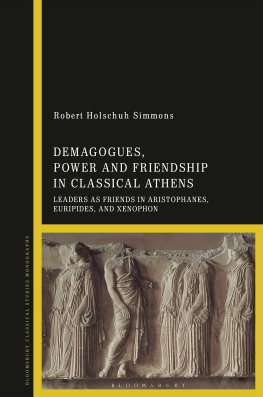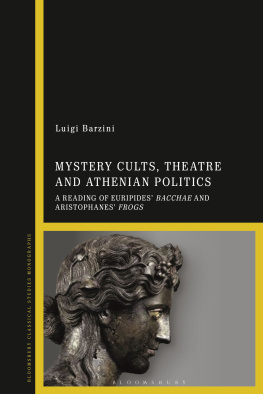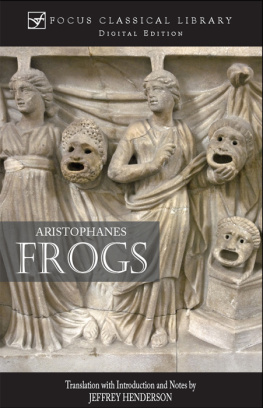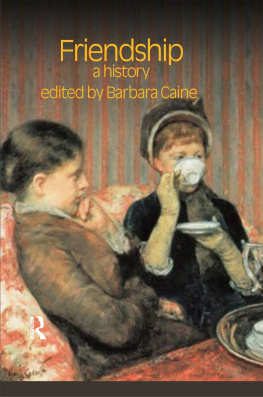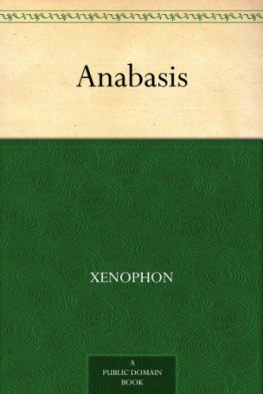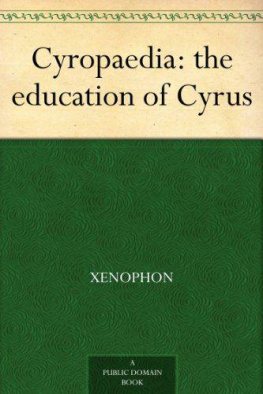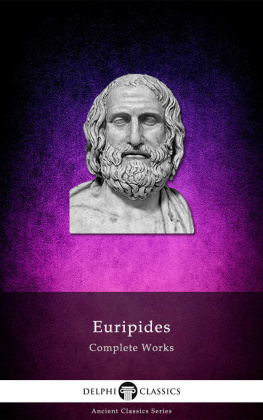
Demagogues, Power, and Friendship
in Classical Athens
For Michelle, Ben, David, Alex, and Marc, who make my life so rich.
Also available from Bloomsbury
Ancient Greece and American Conservatism by John Bloxham
Thucydides and the Idea of History by Neville Morley
Thucydides and the Shaping of History by Emily Greenwood
Contents
This has been a labor of two decades (with many, many separate matters intervening), since demagogues first came onto my radar in the spring of 2002 in a graduate seminar at the University of Iowa taught by John Garca. I had an idea about reading Euripides Bacchae in terms of class dynamics, John directed me to Bob Connors New Politicians of Fifth-Century Athens, and from there I wrote a term paper that I thought was implausible. John, however, thought that it could be a dissertation, for which I am enormously grateful to him, and I ended up writing it on reflections of demagogic politics in Athenian tragedy, directed by Rob Ketterer. I am grateful to Rob for his guidance and support on that project and on the offshoot of it that has become this book. I am also grateful to other faculty members at Iowa whose attention and care in classes I took, whose guidance in classes I taught, whose direction of financial support toward attendance at conferences at which I presented, whose feedback on those presentations, and whose ongoing reinforcement through the years has helped me to develop as a well-rounded professional: John Finamore, Peter Green, Carin Green, Craig Gibson, Marcia Lindgren, Glenn Storey, and Rosemary Moore.
I am grateful to my undergraduate professors at St. Johns University, where I was first exposed to the field of Classics, for igniting the passion within me for this field and for the life of the mind in general. Ray Larson was an inspiringly humorous teacher and an attentive director of my senior thesis, on Dostoevsky and Plato. Rene McGraw, OSB, has been a model of an intellectually and spiritually intentional life, and he has graciously welcomed me back to campus time after time in the decades since my graduation. Diane Warne Anderson was a passionate teacher whose support and camaraderie I have appreciated many times at professional conferences through the years since graduation. Scott Richardson led me to decide to study Classics in the first place, through a vibrant style of teaching that erased the gap between the classical world and modern one. He has been my particular model as a teacher and mentor, and the friendship that he and his wife Shirley have extended to me and my family through the years has been among our groundings since college. Tim Miles, my cross country and track coach at SJU, also helped to develop in me the toughness and commitment that have been critical in continuing this project in the midst of uncountable competing obligations.
I am grateful to my colleagues at the University of North Carolina at Greensboro, with whom I worked for my first eight years out of graduate school. My two chairs, Susan Shelmerdine and Hugh Parker, were tremendous supporters of my professional aspirations, and they provided me opportunity after opportunity to expand my professional skills. My other ongoing colleagues from throughout that timeJeff Soles, Linda Danford, Dave Wharton, Maura Heyn, Jon Zarecki, and Joanne Murphyprovided kind feedback on my ideas, offered models of structure for research and writing that have been critical to my work reaching this point, and showed unwavering kindness and support throughout my time there.
I am grateful to faculty and staff colleagues at Monmouth College, where this book has reached its final form. Classics department colleagues Tom Sienkewicz, Vicki Wine, Adrienne Hagen, and Alana Newman contributed to fostering the intellectual vibrance in the department that propelled this and many other projects forward. Political science colleague Mike Nelson has been my essential weekly goal-sharing partner for the past three years; his wise, gracious advice and guidance have gotten me past many sticking points. Political scientist Robin Johnson generously talked through ancient versus modern political coalition-building with me and provided several critical sources from his contemporary campaign work. Psychologist Sydney Greenwalt kindly shared with me some sources on ingroups and outgroups. Administrative assistants Sarah Dean and Amjad Karkout not only provided direct assistance with research for the book, searches for fellowships, processing of critical secondary sources, and assembly of the bibliography, but have been superb professionals in general, whose handling of a host of departmental matters has allowed me to direct more of my time to this book. Librarians Sarah Henderson and Anne Giffey have been critical in helping me find information in the many fields outside of Classics that I have studied for this book, and Marti Carwile has ordered hundreds of books for the library on my behalf. Monmouth College provided me a sabbatical leave in 201920, in which I did a tremendous amount of work toward this book; I appreciate the freedom from teaching and service duties that helped make this work come to fruition.
I am grateful to student workers Isaac Jacobs, Simone Johnson, Maddie Baker, Nate Williams, Olivia Matlock, Mikayla Moore, and Grace Passaglia, who have been invaluable to this work reaching its final form. They have not only done essential tasks like checking out library books and copying articles for me, but they have also helped structure handouts and PowerPoint presentations for steps this project has taken along the way, adjusted formatting of this book to fit Bloomsburys expectations, and managed the painstaking work of converting my bibliography to Bloomsburys style. Beyond specific help on the book, their willingness and ability to handle a host of departmental tasks, many of which required high levels of professional refinement, have taken a tremendous burden off of me and have, as with Sarah and Amjad, freed me to dedicate time to getting this book completed. I am particularly thankful to Mikayla, Olivia, and Grace for their dedicated assistance and encouragement during the frantic few weeks before the complete draft of this work was due.
I am grateful to audiences at the annual meetings of the Society for Classical Studies (formerly American Philological Association), the American Classical League, the Classical Association of the Middle West and South, and the Illinois Classical Conference, as well as at Monmouth College faculty colloquia, at all of which I delivered talks on topics within this book. Useful feedback that members of those audiences shared in their responses has improved the book considerably.
I am grateful to scholars who have given me individual feedback or provided other means of assistance during the course of this project. While there are many people whom I could put into this category, the ones who have been particularly generous have been Bob Connor, Willie Major, and Jeff Henderson.
I am grateful to the hundreds of students I have had the privilege to teach at the University of North Carolina at Greensboro and at Monmouth College. I have read many of the classical works cited in this book with them, and their perspectives on many of the ideas raised here have helped to shape my takes on them. Classics majors at Monmouth also did a great job of bolstering my spirits as I ground away at final revisions.
I am grateful to all of those at Bloomsbury who have worked with me with kindness and professionalism, including Georgie Leighton, Alice Wright, and Lily Mac Mahon. This book has significantly benefited also from the feedback offered by Bloomsburys anonymous reviewers.
Next page
